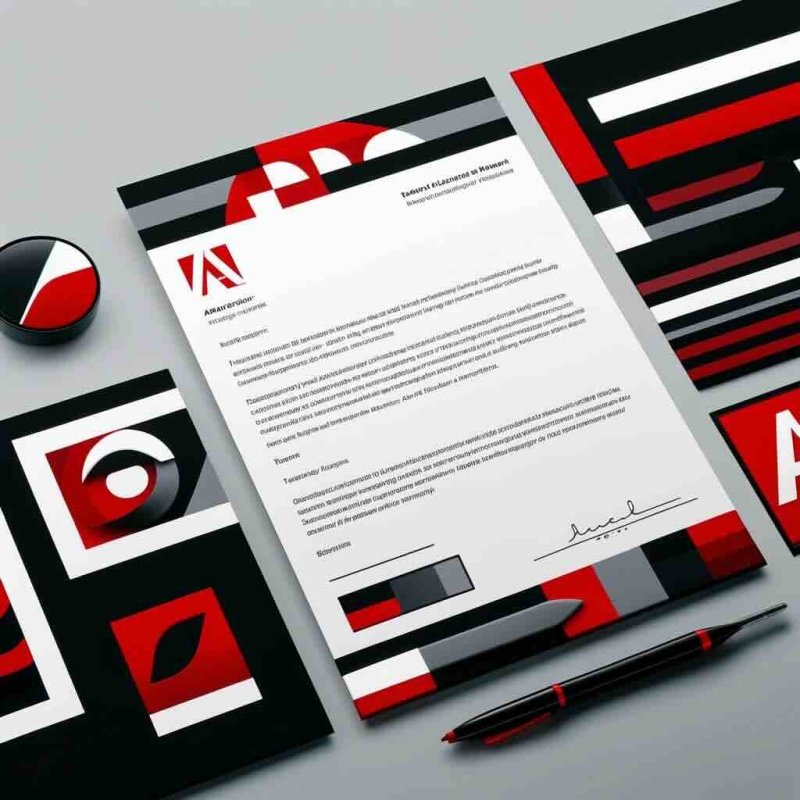Ace Your IFRS 17 Interview: 20+ Must-Know Questions and Answers!
Are you considering a job in the finance industry and are trying to figure out what to expect? Applying for a financial services role requires preparation to maximize your performance during an interview. In particular, if you are applying for an IFRS 17 position, it's vital that you understand the core components of this standard and can answer questions related to its implementation.
To help guide your preparation, we have put together some essential IFRS-17 interview questions and answers designed to prepare you for any situation.
IFRS 17 Interview Questions and Answers
IFRS 17 is a new accounting standard that aims to provide a consistent approach to the recognition, measurement, and presentation of insurance contracts. Here are some potential interview questions related to IFRS 17:
-
Can you explain the main objectives of IFRS 17? The main objectives of IFRS 17 are to provide a consistent approach to the recognition, measurement, and presentation of insurance contracts and to improve the comparability and transparency of financial statements among insurance companies.
-
How does IFRS 17 differ from previous accounting standards for insurance contracts? : IFRS 17 differs from previous accounting standards for insurance contracts in several ways. For example, it introduces a new model for the recognition and measurement of insurance contracts, which replaces the previous "incurred but not reported" (IBNR) approach with a "building block" model. IFRS 17 also requires more detailed disclosure and presentation of insurance contracts in financial statements.
-
How does IFRS 17 impact the recognition and measurement of insurance contracts? : IFRS 17 impacts the recognition and measurement of insurance contracts by introducing a new "building block" model for measuring the present value of an insurer's obligations under a contract. This model is based on the expected cash flows from the contract, adjusted for the time value of money and a risk adjustment for the insurer's non-performance risk.
-
Can you describe the three measurement models specified under IFRS 17 and when each should be used? : Under IFRS 17, there are three measurement models for insurance contracts: the current expected credit loss (CECL) model, the variable fee approach (VFA) model, and the building block model. The CECL model should be used for contracts with significant financing components, the VFA model should be used for contracts with significant investment components, and the building block model should be used for all other contracts.
-
How does IFRS 17 impact the presentation and disclosure of insurance contracts in financial statements? IFRS 17 impacts the presentation and disclosure of insurance contracts in financial statements by requiring more detailed and comprehensive information about the nature, amount, timing, and uncertainty of the insurer's obligations and cash flows under the contracts. This includes the presentation of an "Insurance contract liability" and an "Insurance contract asset" on the balance sheet and the disclosure of information about the insurer's risk exposures and risk mitigation techniques.
-
Can you discuss the challenges and considerations in implementing IFRS 17 for an insurance company? Implementing IFRS 17 for an insurance company can be challenging due to the complexity of the new standard and the need to make significant changes to accounting processes and systems. Insurance companies may need to gather and analyze large amounts of data to determine the present value of their insurance contract obligations and may need to make significant changes to their financial reporting systems and processes to comply with the new disclosure requirements.
-
How has the insurance industry responded to the implementation of IFRS 17?The insurance industry has generally responded positively to implementing IFRS 17, although some insurers have expressed concerns about the complexity and cost of implementing the new standard. Many insurers have been preparing for the implementation of IFRS 17 for several years and have made significant investments in systems and processes to ensure compliance with the new standard.
-
Can you provide an example of how IFRS 17 might affect the financial statements of an insurance company? An example of how IFRS 17 might affect the financial statements of an insurance company is the recognition and measurement of insurance contract liabilities. Under IFRS 17, the present value of an insurer's obligations under a contract must be measured using the "building block" model, which is based on the expected cash flows from the contract, adjusted for the time value of money and a risk adjustment for the insurer's non-performance risk. This could significantly change the recognition and measurement of insurance contract liabilities compared to previous accounting standards.
-
How will IFRS 17 impact the comparison of financial performance among insurance companies? IFRS 17 will impact the comparison of financial performance among insurance companies by providing a consistent approach to the recognition, measurement, and presentation of insurance contracts. This will make it easier to compare the financial performance of different insurance companies, as the financial statements will be presented more comparably and transparently.
-
Can you discuss any potential future developments or updates to IFRS 17? There are no current plans for future developments or updates to IFRS 17, although the International Accounting Standards Board (IASB) may consider making changes to the standard if it determines that such changes are necessary. The IASB has established a Transition.
-
Can you describe the "building block" model for measuring the present value of an insurer's obligations under a contract? : The "building block" model for measuring the present value of an insurer's obligations under a contract is a critical component of IFRS 17. This model is based on the expected cash flows from the contract, adjusted for the time value of money and a risk adjustment for the insurer's non-performance risk. The present value of the insurer's obligations under the contract is determined by estimating the expected cash flows from the contract over its term, discounting those cash flows to their present value using an appropriate discount rate, and adjusting for the insurer's non-performance risk.
-
How is the present value of an insurer's obligations under an insurance contract recognized in the financial statements under IFRS 17?: Under IFRS 17, the present value of an insurer's obligations under an insurance contract is recognized as an "Insurance contract liability" on the balance sheet. This represents the present value of the insurer's obligations under the contract, as determined using the "building block" model.
-
Can you explain the concept of "non-performance risk" as it relates to IFRS 17?: "Non-performance risk" refers to the risk that the insurer will not fulfil its obligations under an insurance contract. This can be caused by various factors, such as the insurer's financial condition or the occurrence of an insured event. To account for non-performance risk in the measurement of insurance contract liabilities, IFRS 17 requires an adjustment to the expected cash flows from the contract to reflect the insurer's non-performance risk.
-
How does IFRS 17 impact the recognition and measurement of reinsurance contracts?: IFRS 17 impacts the recognition and measurement of reinsurance contracts by requiring the ceding insurer to recognize the reinsurance contract as an asset or liability, depending on the terms of the contract. The ceding insurer must also recognize liability for unpaid reinsurance premiums and a corresponding asset for unpaid reinsurance recoveries.
-
Can you discuss the impact of IFRS 17 on the presentation and disclosure of insurance contracts in the income statement?: IFRS 17 impacts the presentation and disclosure of insurance contracts in the income statement by requiring the recognition of the "contractual service margin" in profit or loss. The contractual service margin represents the difference between the expected cash flows from an insurance contract and the present value of the insurer's obligations under the contract, as determined using the "building block" model.
-
How does IFRS 17 address the issue of discounting in the measurement of insurance contract liabilities?: IFRS 17 addresses the issue of discounting in the measurement of insurance contract liabilities by specifying an appropriate discount rate that reflects the time value of money and the insurer's credit risk. The discount rate must be based on observable market data and consistent with the insurer's risk profile and the insurance contract term.
-
Can you discuss the impact of IFRS 17 on the calculation of insurance contract reserves?: IFRS 17 impacts the calculation of insurance contract reserves by requiring the use of the "building block" model for measuring the present value of an insurer's obligations under a contract. This may result in a change in the recognition and measurement of insurance contract reserves compared to previous accounting standards.
-
How does IFRS 17 address the issue of policyholder dividends and participation features in the measurement of insurance contracts? IFRS 17 addresses the issue of policyholder dividends and participation features in the measurement of insurance contracts by requiring the recognition of any expected policyholder dividends or participation features as a reduction in the present value of the insurer's obligations under the contract.
-
Can you explain the concept of "contractual service margin" as it relates to IFRS 17?: "Contractual service margin" is a term used in IFRS 17 to refer to the difference between the expected cash flows from an insurance contract and the present value of the insurer's obligations under the contract, as determined using the "building block" model. The contractual service margin is recognized in profit or loss over the contract term.
- How does IFRS 17 address the issue of insurance contract renewals and modifications? IFRS 17 addresses the issue of insurance contract renewals and modifications by requiring the insurer to reassess the present value of its obligations under the contract and make any necessary adjustments to the "Insurance contract liability" and the "contractual service margin" in the financial statements. Any changes to the terms of the contract, such as changes in premiums or coverage, must also be accounted for
Summing up
Overall, if you are looking to enter the finance industry and have your sights set on an IFRS 17 role, in particular, it is essential that you thoroughly prepare for your interview.
In addition to brushing up on the core components of this standard and having detailed answers ready for questions related to its implementation, taking an IFRS certification course can also help boost your chances of impressing potential employers.
Eduyush's online IFRS courses from AICPA and ACCA are designed to provide you with all the knowledge and skills necessary to excel in any financial services role. So why give us a try today? You could be one step closer to landing your dream job tomorrow!
Interview Questions? Answers.
- Accounting Interview questions and answers
- Accounts receivable interview questions
- Accounts payable interview questions
- ESG Interview questions
- Forensic accountant interview questions
- Financial controller interview questions
- GST interview questions
- IFRS interview questions and answers
- IFRS 15 interview questions and answers
- IFRS 17 Interview Questions and answers
- IFRS 9 Interview Questions and Answers
- IFRS 16 Interview Questions and answers
- Managerial round interview questions and answers
- Blockchain interview questions for finance professionals
It's important to dress professionally for an interview. This usually means wearing a suit or dress pants and a button-down shirt for men, and a suit or a dress for women. Avoid wearing too much perfume or cologne, and make sure your clothes are clean and well-maintained.
It's best to arrive at least 15 minutes early for the interview. This allows you time to gather your thoughts and compose yourself before the interview begins. Arriving too early can also be disruptive, so it's best to arrive at the designated time or a few minutes early.
It's a good idea to bring a few key items to an interview to help you prepare and make a good impression. These might include:
- A copy of your resume and any other relevant documents, such as references or writing samples.
- A portfolio or sample of your work, if applicable.
- A list of questions to ask the interviewer.
- A notebook and pen to take notes.
- Directions to the interview location and contact information for the interviewer, in case you get lost or there is a delay.
t's generally not appropriate to bring a friend or family member to an interview, unless they have been specifically invited or are necessary for accommodation purposes.
If you are running late for an interview, it's important to let the interviewer know as soon as possible. You can try calling or emailing to let them know that you are running behind and to give an estimated arrival time.
If possible, try to give them a good reason for the delay, such as unexpected traffic or a last-minute change in your schedule. It's also a good idea to apologize for the inconvenience and to thank them for their understanding.
- It's generally a good idea to address the interviewer by their professional title and last name, unless they specify otherwise. For example, you could say "Mr./Ms. Smith" or "Dr. Jones."
Yes, it's perfectly acceptable to ask about the company's culture and benefits during the interview. In fact, it's often a good idea to ask about these things to get a better sense of whether the company is a good fit for you. Just make sure to keep the focus on the interview and not get too far off track.
It's okay to admit that you don't know the answer to a question. You can try to respond by saying something like: "I'm not sure about that specific answer, but I am familiar with the general topic and would be happy to do some research and get back to you with more information."
Alternatively, you can try to answer the question by using your own experiences or knowledge to provide context or a related example.
It's generally best to wait until you have received a job offer before discussing salary and benefits.
If the interviewer brings up the topic, you can respond by saying something like: "I'm open to discussing salary and benefits once we have established that we are a good fit for each other. Can you tell me more about the overall compensation package for this position?"
It's important to remember that employers are not allowed to ask questions that discriminate on the basis of race, religion, national origin, age, disability, sexual orientation, or other protected characteristics. If you are asked an illegal question, you can try to redirect the conversation back to your qualifications and skills for the job.
For example, you might say something like: "I'm not comfortable answering that question, but I am excited to talk more about my skills and experiences that make me a strong fit for this position."
It's okay to admit that you don't understand a question and to ask for clarification. You can try saying something like: "I'm sorry, I'm not sure I fully understand the question. Could you please clarify or provide some more context?"
At the end of the interview, thank the interviewer for their time and express your interest in the position. You can also ask about the next steps in the hiring process and when you can expect to hear back. Finally, shake the interviewer's hand and make sure to follow up with a thank-you note or email after the interview.











Leave a comment